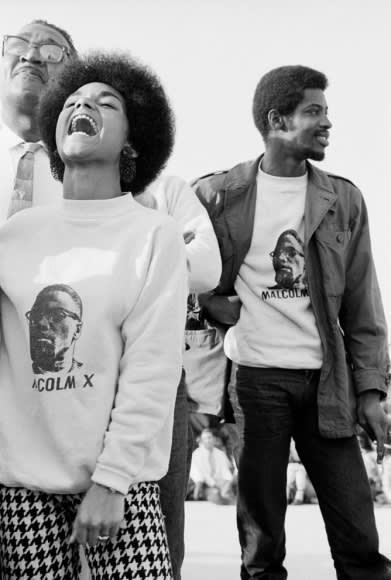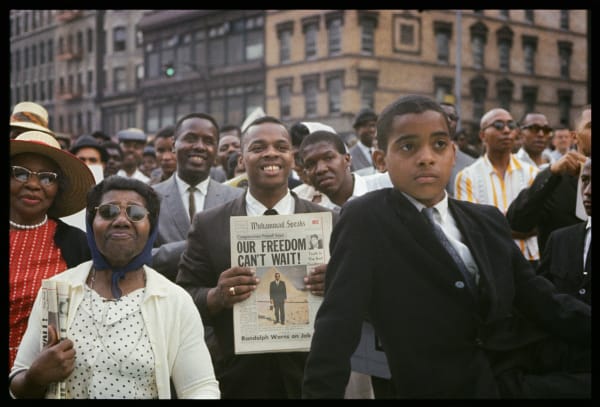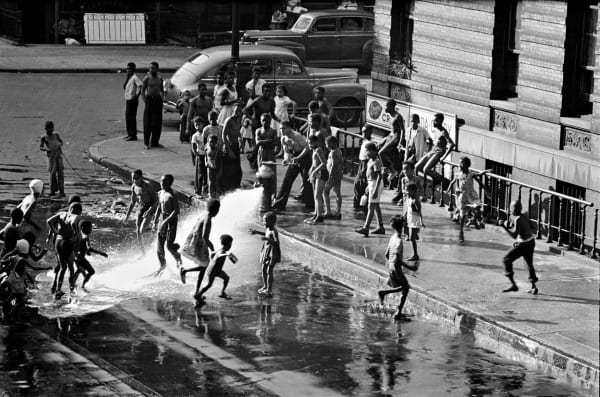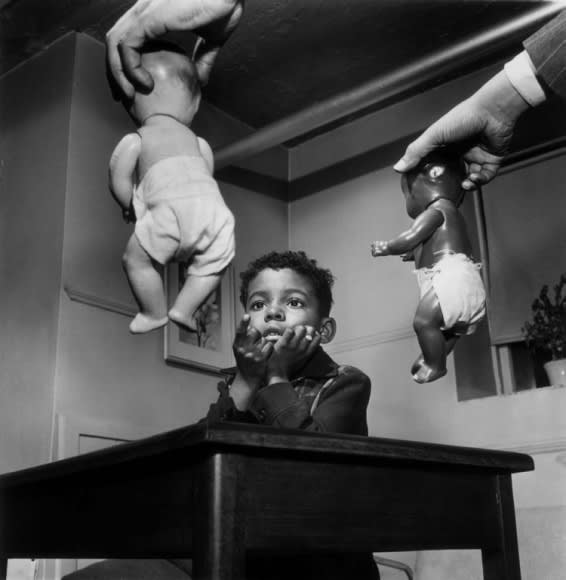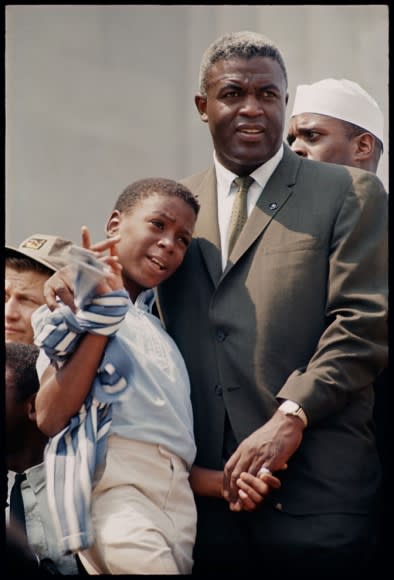Jenkins Johnson Gallery is pleased to announce participation in Art Basel, Feature with a solo presentation of civil rights photographs by Gordon Parks, and Art Basel, Film Section with Mohau Modisakeng and Carlos Javier Ortiz at the Stadtkino Basel.
FEATURE: GORDON PARKS
Gordon Parks, a pioneer of 20th century art, was a beloved American photographer, writer, composer, and filmmaker whose career spanned over six decades.
As the world reacts to upheavals in global politics, Parks’ civil rights photo essays are especially relevant. His work captures the turmoil, unrest, and the human emotions of another tumultuous time in world history. The Civil Rights Movement of the 1950s and 1960s was a reaction to political and cultural divides, and the present provides striking similarities. The current struggles in the U.S. and throughout the world for racial equality, freedom of religion, open immigration, women’s rights, and the LGBTQ equality echo the activism portrayed in Parks’ photographs.
Presented are highlights of Parks’ lifetime works and new limited editions photographs, including works focused on the Civil Rights Movement. Park’s I AM YOU- a limited edition portfolio of 12 little-known works from the Civil Rights Era- also makes its debut here.
Concurrent with Art Basel, “Gordon Parks: I Am You, Selected Works 1942-1978” is on view at Fotografiemuseum Amsterdam through September 6, 2017. Select upcoming exhibitions will include the National Gallery of Art, Washington D.C. and The J. Paul Getty Museum.
Gordon Parks was born into poverty and segregation in Fort Scott, Kansas in 1912, the youngest of 15 children. He worked several odd jobs until he bought a camera at a Seattle pawnshop in 1937 and eventually was hired to photograph fashion at a Minneapolis department store. In 1941-1945, Parks joined Roy Stryker at the Farm Security Administration, succeeding Dorothea Lange, then on to Standard Oil, eventually becoming a freelance photographer for Vogue. In 1948 Parks became the first African American to work as a staff photographer for Life magazine, where he remained until 1972, as well as the first black to direct a major motion picture, The Learning Tree in 1969. In 1971 he pioneered the Blaxploitation genre with his film, Shaft. He wrote numerous memoirs, novels and poetry and received countless awards, including the National Medal of Arts. Parks’ photographs are in many public collections, including: The Museum of Modern Art, NY; The Metropolitan Museum of Art, NY; The Whitney Museum of American Art, NY, The Art Institute of Chicago; Library of Congress, Washington, DC.
FILM SECTION: MOHAU MODISAKENG and CARLOS JAVIER ORTIZ
Jenkins Johnson Gallery artists presenting in Art Basel’s Film Section at Stadtkino Basel are Mohau Modisakeng, To Move Mountains, 2015, showing Wednesday, June 14, and Carlos Javier Ortiz, We All We Got, 2014, showing Friday, June 16. The works of Modisakeng and Ortiz, like Parks, reverberate with tension and similarly reflect today’s political events.
Mohau Modisakeng, a 57th Venice Biennale representative for South Africa, created the film To Move Mountains, as a meditation on violence, directly addressing the brutality directed at the black labor force in South Africa. The film references the 2012 Marikana Massacre, the most lethal use of force by South African security forces against civilians since 1960. Modisakeng combines stark tones of black and white, representing both coal and smoke, worker and oppressor, with a smoky atmospheric aesthetic, giving the film the appropriate gravitas for its foundation. Modisakeng also participated in the 56th Venice Biennale, and in 2016 he was award the Standard Bank Young Artist Award, the foremost art award in Africa.
Carlos Javier Ortiz, 2016 winner of a Guggenheim Fellowship for film, has created an intimate portrait of people affected by gun violence, including community activists, children, and cops. In the context of Black Lives Matter, We All We Got highlights the recent focus on youth violence, particularly in relation to black and brown youth, as well as police brutality, poverty and marginalized communities. Ortiz has also received a Pulitzer Center Grant and a Robert F. Kennedy Center for Justice and Human Rights photography award.

